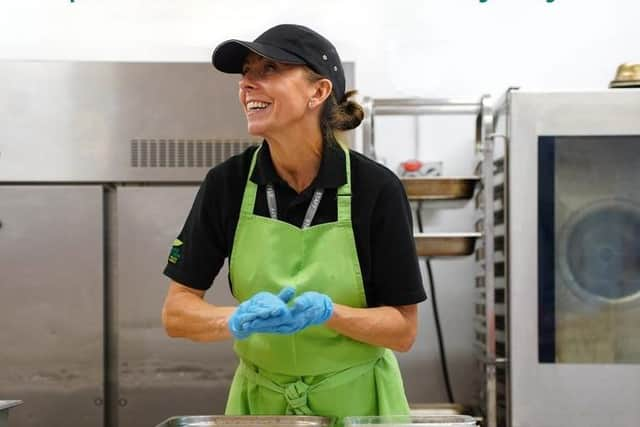City council is not doing enough to promote veganism in Milton Keynes, claim campaigners
and live on Freeview channel 276
Milton Keynes City Council is not being inclusive enough for vegans, it has been claimed.
The Vegan Society has created a heatmap of the UK, showing which local authorities are leading the way in their responsibility to cater for plant eaters and which are falling behind.
Advertisement
Advertisement
They used a traffic light system, with green for councils where public sector menus are heavily plant-based and red for the ones that are not inclusive enough for vegans.


Milton Keynes came out as ‘red’, which means it is failing to promote veganism or address local meat and dairy consumption to meet climate targets, says The Vegan Society.
They sent Freedom of Information (FOI) requests to 209 councils in across England, Wales, Scotland and Northern Ireland, asking whether the council took into account the fact that veganism is a “protected characteristic” in food provision, whether the council served vegan options as standard in its onsite catering or required options to be served in procurement contracts, and whether it had meat and dairy reduction plans.
The society, which has published a report called Catering For Everyone, is now calling for a guaranteed plant-based option on all public sector menus to meet health and environmental goals.
Advertisement
Advertisement
A spokesperson said: “The report reveals that a quarter of councils did not acknowledge their responsibility to consider veganism as a protected characteristic when making catering decisions and many public sector menus frequently fail to consistently include a single vegan option.
"In the UK, veganism is recognised as a protected belief and councils have a legal responsibility to provide adequate options for those who choose to live a vegan lifestyle.”
In addition to their legal responsibility to cater for vegans, the National Food Strategy has recommended that local authorities act to promote sustainable diets in order to reduce emissions in response to the climate crisis. Moving away from animal products is an essential step in achieving this, with plant-based diets producing just 25% of the emissions compared to one that includes meat, says The Vegan Society.
They cite Oxfordshire County Council, which scored ‘green’, as a good example of a vegan council. They ensure all catering for external meetings is completely plant-based and one third of meals in the county’s primary schools are vegan.
Advertisement
Advertisement
Claire Ogley, head of campaigns, policy and research at The Vegan Society, said: “Our new report reveals which areas are excelling and which are falling behind. It’s fantastic to see some councils – such as Oxford and Edinburgh – leading the way and taking strong steps to include vegans and acknowledge the urgency of the climate crisis. However, for many local authorities – including Milton Keynes Council – there is still a long way to go and we hope our report will be a useful tool to help people to hold their local areas to account and push for more sustainable options.
"Ensuring that all public sector menus provide a 100% plant-based option every day is a crucial step towards vegan-inclusion across the UK and to encourage the transition to a more sustainable and healthier food system for everyone.”
The Vegan Society is now urging people in MK to write to their local councillors and MP, encouraging them to improve options for vegans across public sector menus.